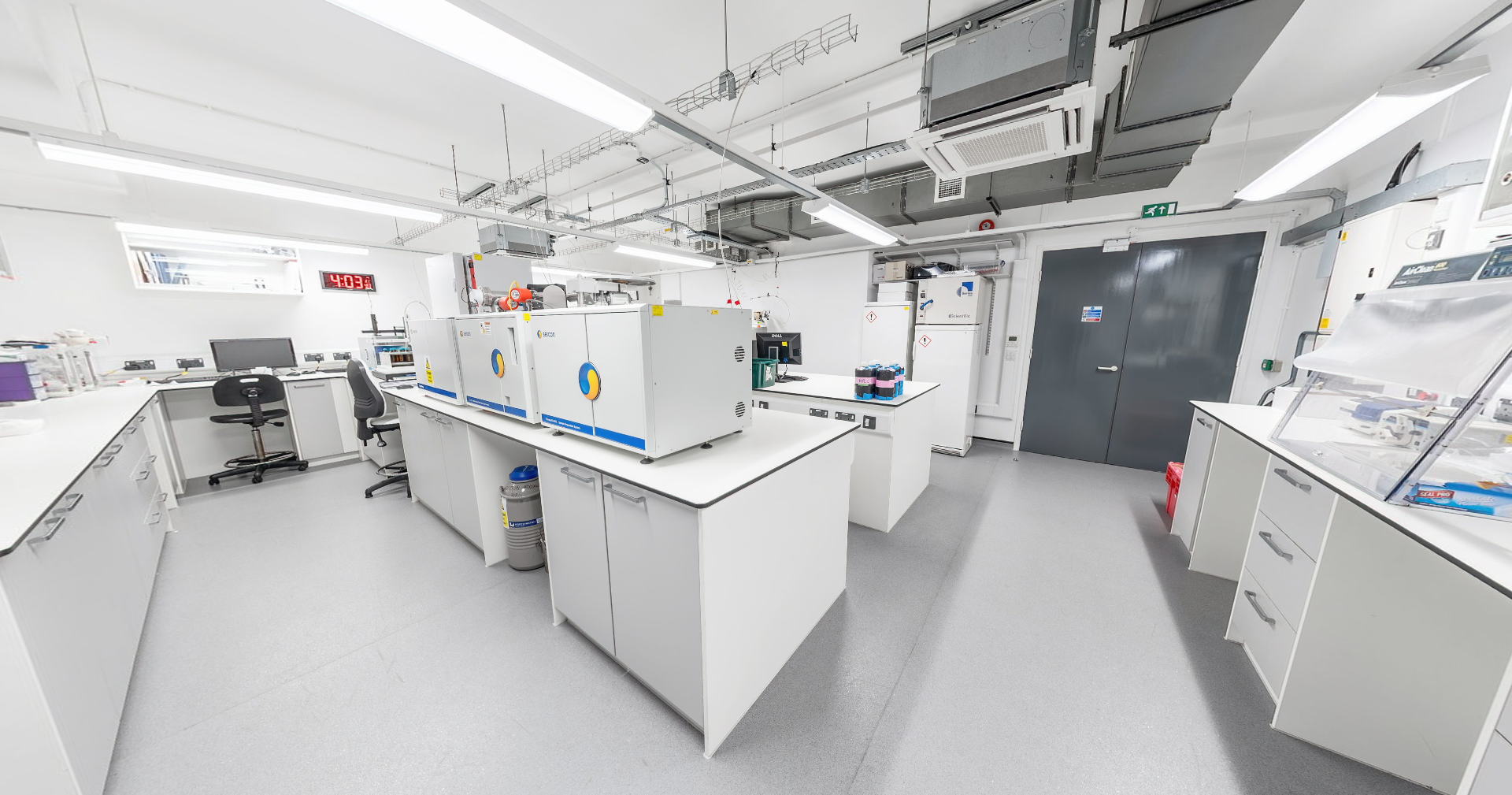
Marine Chemistry
-

Plymouth Marine Laboratory
PML is a world-leader in marine biogeochemistry research. This ranges from the seafloor, through the water column, across the sea surface and into the atmosphere and our explorations take us from rivers and estuaries to coastal regions, transecting oceans and beyond, from tropical through temperate to polar regions. Our research topics and associated facilities currently include:
• Climate active marine gases: dimethylsulphide (DMS), methane, nitrous oxide, carbon dioxide, ozone, oxygen, oxygenated volatile organic compounds, nitrogenous osmolytes and methylamines (using proton transfer reaction mass spectrometry, cavity ring down spectroscopy, Fourier-transform spectroscopy, liquid chromatography/mass spectrometry, gas chromatography/mass spectrometry, stable isotope mass spectrometry, solid phase micro extraction).
• Ocean acidification experiments: carbon sequestration and deoxygenation research and effects on benthic fauna.
• Marine carbonate chemistry: Total alkalinity, dissolved inorganic carbon, CHN analyses, pH.
• Nutrient analyses: Dissolved organic and inorganic nutrients; total nitrogen, total phosphorus, nitrate, nitrite, ammonium, phosphate and silicate, autonomous sensors. • Stable isotopes: 15N, 13C particulate samples and of nitrous oxide and methane.
• Radiochemical facilities for primary production and microbial uptake experiments.
• Marine atmospheric chemistry: air/sea flux analyses and ship emission research are conducted from PML’s atmospheric observatory (NOx, SOx, ozone, aerosols, carbon dioxide and methane).
• Microplastics and the link between dissolved marine gas production.Our science facilities participate in the Laboratory Efficiency Assessment Framework (LEAF, developed by UCL) to drive sustainability throughout our research activities. PML is certified to ISO 9001 (quality) and ISO 45001 (health and safety) standards.
-

University of Plymouth
The University has a track record of delivering and collaborating on marine chemistry projects both in UK and international teams. We explore the chemistry of deep-sea sediments, suspended particles, seawaters, atmospheric gases, aerosols and polar ice cores, attracting support from a variety of different funders (e.g. NERC, BBSRC, EU Horizon, NSF, Australian and Norwegian Research Councils).
We have established our laboratories as a centre for environmental analytical techniques, where we have developed and published methodologies for the analysis of marine samples, led international work groups and hosted training on techniques.
The specific facilities available to marine research include:
(i) Nutrients and carbon analysis, including handheld field sensors, flow injection nutrient analysis, ion chromatography, total organic carbon, and CHN analyser.
(ii) Molecular analysis. This includes organic processing laboratory, infrared (FTIR) and Nuclear Magnetic Resonance (NMR) spectroscopy, high performance liquid and gas chromatography facilities with mass spectrometry detection.
(iii) Trace elements and elemental composition of seawaters and particles
This includes Class 1000 cleanroom facilities, voltammetry, X-ray fluorescence, particle acid digestion suite and ISO 9001 certified Inductively Coupled Plasma (ICP) analysis with mass spectrometry and optical emission spectrometry.
